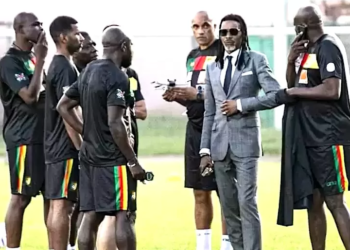Sometimes it so happens that an individual influences the proceedings so much that after a point it becomes extremely difficult to separate the event from the man.
Pele in Mexico ’70 and Diego Maradona at the very same venue 16 years later were so dominant that the two World Cups are remembered for their exploits.
While Maradona’s goal against England, the one that followed the `Hand of God’, is considered by many as the greatest strike in World Cup history, the second of the two goals he scored against Belgium in the same edition is considered by the connoisseurs as having been as brilliant in execution. Collecting the ball some 35 yards out, the Argentinean beat three defenders and got to the top of the arc, even as a fourth defender approached.
Maradona sold him a dummy, pushed the ball ahead of him by a few yards, raced to it and shot past an onrushing Pfaff.
Manuel Negrete of Mexico came up with an exceptional effort in the contest against Bulgaria in the same edition, where he worked the ball from 25 yards out, passed it to a teammate, dashed up, collected the ball in the air and `scissor-kicked’ or back-hooked it bang on target.
What then of Brazilian right-back Josimar’s thundering 25-yarder against Northern Ireland after collecting the ball from some 40 yards out?
Or, for that matter, Julio Cesar Romero’s header for Paraguay against Mexico where he craned his neck to head in the ball after hurling himself to meet the cross in the box.
Maradona was well past his best in Italy ’90. West Germany extracted its revenge over Argentina, winning the title-clash this time around, with Lothar Matthaeus emerging as one of the most commanding generals in the game.
In fact, his two tremendous drives from afar in the contest against Yugoslavia – the second was a brilliant solo in which he ran with the ball from just inside his half before unleashing a 25-yarder – still rings in the ears.
While the Dutch, with the immensely-talented trio of Marco Van Basten, Ruud Gullit and Frank Rijkaard disappointed, there emerged Roberto Baggio as Italy’s most gifted striker at that point in time and the small, swift and dynamic Salvatore `Toto’ Schillaci as his partner. In fact, Schillaci finished as the highest scorer of the tournament with six goals while the host went down to Argentina on penalties in the semifinals.
The second round game against Uruguay saw an incredible effort from Schillaci who pivoted and blasted a left-footer off an Aldo Serena pass.
The ball rose and looked to be going over the post when it dipped over goalkeeper Alvez and into the goal.
Baggio’s run from the halfway line to strike down the Czechs in the group phase is also memorable, as was the performance by Cameroon – Roger Milla in particular – which advanced to the quarterfinals where it lost narrowly (2-3) to England. The true heroes of the event, so to say.
Eugene Ekeke scored a peach of a goal in that game. Coming on as a substitute, he engineered the ball up, passed it to Milla, ran around the English defence, received a superb pass from Milla and beat goalkeeper Peter Shilton in style – all so gracefully done.











